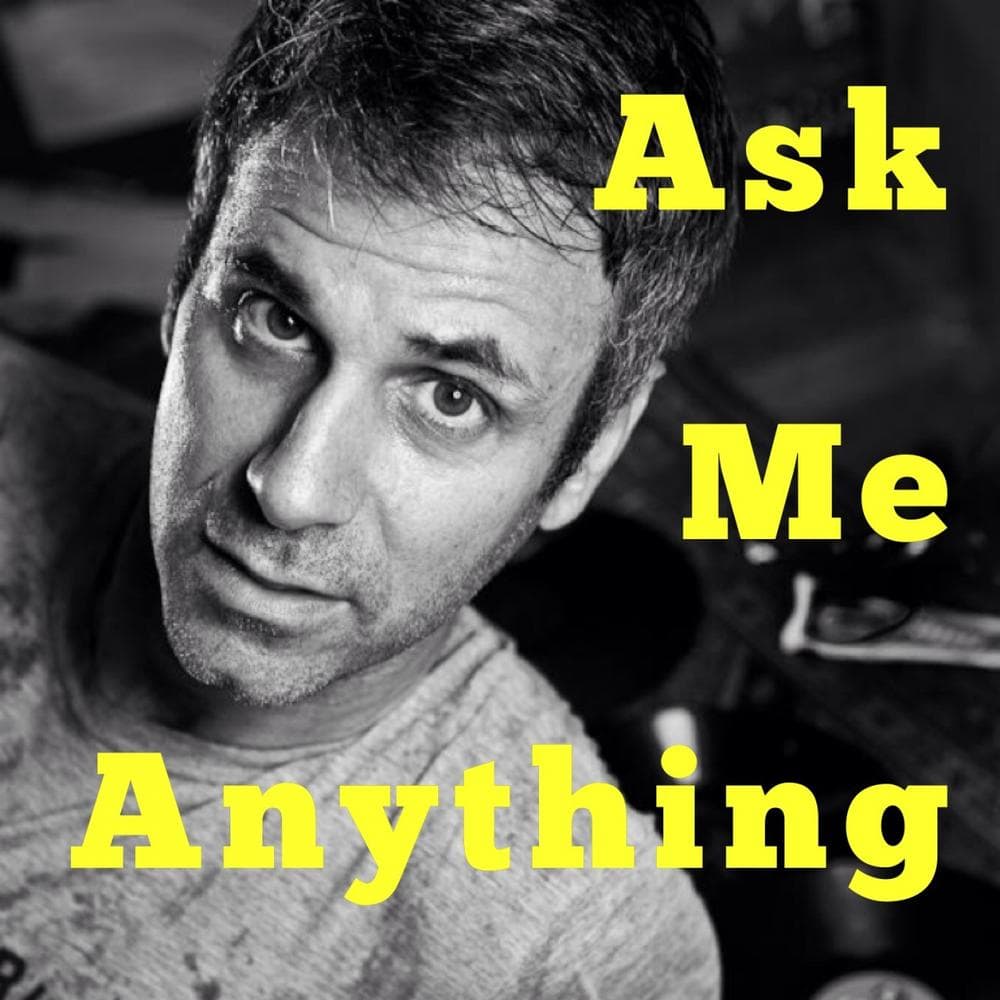Advertisement
Heavy Meddle: Is It OK For A Writer To Self-Plagiarize?
Welcome Meddleheads, to the column where your crazy meets my crazy! Please send your questions to advice@wbur.org. Right now. Not only will you immediately feel much better, you'll also get some advice.
Hugs,
Steve
…
Dear Steve,
While looking for something else, I ran across clear evidence online that a writer whom I admire had “self-plagiarized.” That is, he had lifted wholesale a piece he wrote for one purpose and reused it for a different purpose. I might not mind so much except that the first use was to market the publication he writes for, and the second was in a purely journalistic forum.
Do I have any kind of moral obligation to blow the whistle?
On the other hand, he did actually write the words (I assume), and they did fit into both contexts, so did he really do anything wrong? I know that other writers, including others at his very own magazine, have been pilloried for this sort of thing, but I’m just not 100 percent sure what I think about it. And given that this all happened more than a month ago, and that I ran across it by chance, and that no one else seems to have noticed, do I have any kind of moral obligation to blow the whistle? Or should I just worry about my own writing and ethics, and let his take care of themselves?
Signed,
Wavering Whistle Blower
…
Dear WWB,
Fortunately, I’ve given this issue some thought recently. In fact, not too long ago I wrote about the plagiarism scandal that recently engulfed Senator Rand Paul.
I had a hard time getting too worked up about Paul’s alleged crimes. What he did — or what his poor speechwriters did — was lift plot summaries of two recent films from Wikipedia. Big deal.
To those of you with really good memories, or an unhealthy Cognoscenti fetish, the preceding sentence may seem a bit familiar. Why? Because I just self-plagiarized!
Within the pantheon of literary crimes, self-plagiarism strikes me as pretty small potatoes.
And here’s a deep, dark confession WWB: I have self-plagiarized before. Technically, I may be a habitual self-plagiarizer.
Am I proud of this? No.
Then again, within the pantheon of literary crimes, self-plagiarism strikes me as pretty small potatoes. To the editors in question it may represent an act of deceit. That is, if you don’t tell one or both editors that you’re “recycling” your prose. And in the case you’re describing, it sounds like it’s more than just a paragraph or two. It’s an entire piece.
So legally, there may be copyright issues. That is: if the venue that commissioned the piece first holds first-serial rights, then it may be illegal for another venue to republish the piece without permission. Without a doubt, the proper legal way to deal with this is for the writer to inform the second editor that the piece has already been published, to secure permission for it to be reprinted, and for the article to include a credit something like, “This piece ran previously in Thus-and-Such Magazine.” You see this kind of disclaimer all the time at the beginning of books and at the end of articles.

So that’s the legal part of this.
As for the morality part, it’s a bit fuzzier. After all, to most readers this kind of recycling is, at worst, a form of laziness.
Real, honest-to-goodness plagiarism strikes me as a lot more damning. It is truly dishonorable to attempt to pass off someone else’s intellectual and creative work as your own. More than that, it’s just sad.
Likewise, consciously fabricating scenes or facts or quotes to gin up your non-fiction work is a total scumbag move. It’s a violation of the basic trust the reader places in you. And it’s a crime that I committed as a rookie journalist long ago. I can still feel the deceit in the pit of my stomach.
So those, to me, are felony offenses. In your guy’s case, it feels like more of a victimless misdemeanor.
Am I suggesting that the writer in question did nothing wrong? Actually, if the editors in question knew he was using the same piece for both venues and didn’t object, then yeah, I guess I am.
Look: in an ideal world, writers would have the time and energy to produce original work for every single venue that asked them. But in an ideal world, people wouldn’t use clichés. And I certainly wouldn’t be an advice columnist.
Surviving as a professional writer is one continuous hustle. That doesn’t mean you’re allowed to play fast and loose with the truth. But it does mean you sometimes make decisions based on expedience rather than honor.
Surviving as a professional writer is one continuous hustle. That doesn’t mean you’re allowed to play fast and loose with the truth. But it does mean you sometimes make decisions based on expedience rather than honor.
This guy is not recycling his work to spite you. He’s probably doing so either because he got permission, or because he figured it wasn’t that big a deal. After all, he must have known that somebody — an eagle-eyed reader like you, anyway — would notice, right?
I recognize that my advice here is biased, and readers are welcome to rake me over the coals for this — actually, “rake me over the coals” is a cliché, so make that a double — but I’d cut this guy some slack.
Your little scumbag,
Steve
♥
Okay folks, now it's your turn. Did I get it right, or muck it up? Let me know in the comments section. And please do send your own question along, the more detailed the better. Even if I don't have a helpful response, chances are someone in the comments section will. Send your dilemmas via email.
This program aired on December 9, 2013. The audio for this program is not available.